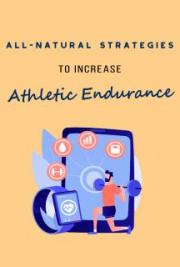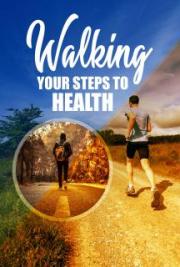Appendix: Fast Food — The Addiction
While researching this very interesting topic at length, one of the first things that jumped out at me and almost literally took my breath away was when I read the following words: fast food is as addictive as heroin and that studies have actually proven that.
As I read on I discovered that scientists have already proven that there are links between drug and fast food addictions and that now there is even more research indicating that junk food is wiring our brains for such cravings.
One such study that was published in Nature Neuroscience likened the affects of high fat and high calorie foods (if you can really call that food!) to those of heroin or even cocaine at least in animals thus far. Ok so for now at least I can take a deep breath and not worry that if I all of a sudden crave a Burger King cheeseburger that I am at most certainly at risk of becoming a hard-core drug addict!
The researchers showed that the pleasure center in a rat's brain had become very over stimulated by the fast food that is in fact similar to a cocaine addict's binge. As time went by, their pleasure centers became so overloaded that that these rats required more and more food to feel "normal" according to Paul H. Kenny, who is an associate professor of molecular therapeutics at the Scripps Research Institute. I had to stop to ponder just for a moment what exactly constitutes a rat's feeling of "normalcy"?!
Throughout the study, Kenny and his co-author studied three groups of lab rats for a total of forty days. The first group ate nothing but healthy food. The second group ate a small amount of junk food while the third group was given free rein to gorge upon both high fat and high caloric foods and not surprisingly, this last group of rats became obese. The brains of the obese rats had actually changed. The problem is that the body is remarkably adaptable to change. Kenny said in a press release that "when the animal over stimulates its brain pleasure centers with highly palatable food, the systems adapt by decreasing their activity.
However, now the animal needs constant stimulation from palatable food to prevent a persistent state of negative reward." During the study, the rats had completely lost control over the ability to regulate whether they were indeed hungry and often even ate despite the electric shocks that were administered to them. When these obese rats were put onto a regular and healthy diet, they refused to eat and ended up starving themselves for two weeks (anorexic rats?!)
In yet a different study, researchers at Albert Einstein College of Medicine in NYC, New York discovered that feeding rats a diet that is high in calories, saturated fat and sugar (which is basically what you will find in most typical fast food items), actually lowered the rats' ability to respond to leptin. Leptin is a hormone that helps monitor eating behavior by controlling how full one feels. As the rats grew fatter and fatter, the leptin levels in their bodies increased which signaled that they were very dangerously close to starvation. They continued in their cycle of overeating and gaining weight.
Those who have gone through or are going through the yo-yo diet syndrome face very similar problems as those who are literally going through withdrawals do, as some researchers from Boston University proved recently. According to Pietro Cottone, an assistant professor in the Laboratory of Addictive Disorders at Boston University, those people who diet tend to seek out those foods that help them avoid the negative feelings that they experience when they are deprived of their favorite comfort foods. According to Kenny, "These findings confirm what we and many others have suspected, that over-consumption of highly pleasurable food triggers addiction-like neuroadaptive responses in brain reward circuitries, driving the development of compulsive eating." Drug addiction and obesity seem to have mechanisms in common.
In line with theories that explain both obesity and addiction, the dopamine receptors or D2 levels in the brains were drastically reduced within the animals that had become obese, which is quite similar to reports made that have shown what takes place within a human drug addict.
This addictive behavior began nearly from the minute that they reduced the dopamine receptors and the day after the animals were given access to palatable food, "their brains changed into a state that was consistent with an animal that had been overeating for several weeks. The animals also became compulsive in their eating behaviors almost immediately." To date, this data gives strong support to the theory that over indulging in palatable food does at times develop into a habit of doing so in much the same way an addict abuses drugs.
The Scripps Research Institute is one of the world's largest non-profit, independent biomedical research organizations at the forefront of basic biomedical science, which seeks to fully, understand the fundamental processes of life. Scripps Research is internationally known and recognized for its discoveries in immunology, chemistry, cellular and molecular biology, neurosciences, autoimmune cardiovascular and infectious diseases and synthetic vaccine development.
Established in 1961 it employs approximately 3,000 administrative and technical support personnel, doctoral degree graduate students, postdoctoral fellows and scientists. Scripps Research is located in La Jolla, California and include Scripps, Florida whose researchers focus on biomedical basic science, technology development and drug discovery. Scripps Florida is located in Jupiter, Florida.
The Health Hazards of Fast Food Addiction: What Your Body Is Going Through.
There are so many serious health risks associated with eating at fast food restaurants (and obviously the risks increase by what you eat there and how often) that it is hard to know exactly where to start. This is quite a serious topic and one that should not skipped over; not even just one important piece of knowledge that can help save not only yourself from diseases but also your children if you have any, or even children of your friends, family members etc. Eating at McDonalds for one example did not start for most of us at the age of 25 or 30. This bad habit probably started more at about the age of 5 years old or thereabouts. I would dare say there is probably not one child at that age or older who would not know what a "happy meal" is, where they can order one from and which toy is hot that week!
Out of all the horrors of the epidemic of obesity, childhood obesity is at an all-time high and is extremely terrifying. Almost one out of every three children in America is now either obese or at least fits the overweight category and unfortunately will deal with those consequences for the rest of their lives if they continue to eat the way they are now. Some of these children are more likely to remain heavy into their adulthood and develop serious complications of diseases that are diet-related from early on in life.
I would have to make an educated guess that the pattern will continue more so if a.) their parents eat just as badly and allow their kids to eat the same horrible food choices or b.) their friends have poor eating choices. Peer pressure and influence in childhood and youth is not strictly wrapped up in drugs and alcohol as most of us have been taught to believe, but also in the way their friends choose to eat with unhealthy food choices and in the amounts of those poor choices as well.
Some people can probably get away with the occasional trip to a fast food restaurant say once a month or maybe even once a week, depending of course on what they order and how much. Sometimes I can't help but wonder if I am the only one who has the common sense and will power to drive through a Burger King for one example and only order something as simple as a cheeseburger. It seems that many people I know feel almost compelled to think that they "must" order a sandwich, fries and/or onion rings, a sugary fountain drink and perhaps even a dessert!
Some of the blame for this could be the intriguing sense of saving money on the so-called value meals or even worse, the super-sized value meals. I honestly cannot remember the last time I visited a fast food restaurant and ordered their drinks or desserts or even their entire package deal. That could be one way to allow for some fast food on rare occasions without eating an entire day's worth of calories in just one meal (sandwich, fries, drink and maybe even a dessert). It is very easy for me to just order a sandwich and drive away happy! It could also be that I am not a fan of fountain drinks and am picky about the side food orders they have available to choose from.
So let's get back to the health risks associated with a steady supply of fast foods. Diet-related diseases are occurring in children at younger and younger ages now more than ever before. Back in the 70s it was quite unusual to see a child with type 2 diabetes; it was called adult-onset diabetes. The Centers for Disease Control is predicting that one out of every three children born in the year 2000 is at risk of developing diabetes. Fatty liver disease is also becoming more and more common in adolescents as is the thickening of the arteries, which is usually seen in adults in their 40s. Young kids are also developing kidney stones from the massive amounts of salt that come with fast foods in particular.
Heart disease is not to be overlooked nor taken lightly as it is one of the deadliest and most common diseases from obesity that can be blamed greatly on fast food, primarily from the high levels of bad cholesterol and low levels of good cholesterol found in such bad foods.
Polycystic ovary syndrome is a main cause in female infertility and women who are obese have a much greater chance of developing this disorder. This disease can also result in excessive growth of hair and irregular menstrual periods. Sleep apnea, which can cause you to stop breathing while sleeping, disrupts normal sleep cycles and can keep you from adequate sleep and result in fatigue in the daytime. Those who are overweight or obese are at greater risk from suffering from sleep apnea.
The list of serious risks continues with arthritis-even in children. This is a condition that results from strains on the joints for extended periods of time. Extra or excessive weight definitely causes the strain and can be one of the culprits for why even younger people are suffering from this as well as adults. Respiratory problems can also develop in obese people. The excessive weight basically forces your lungs to work much harder in order for them to get the oxygen that is required in a timely fashion. Asthma is also more common in obese humans.
Obesity also gives way for liver damage since it's difficult for the body to live with obesity especially from fast foods because these foods often don't get appropriately distributed. When that happens fat can then build up around the liver, resulting in inflammation, scarring and permanent damage. Lastly, one of the most serious diseases that can develop is a stroke. When arteries get blocked from carrying blood to the brain, a stroke is likely to occur. These blockages are much more likely to happen in obese people as they usually have both high blood pressure and high cholesterol, which contributes to these blockages.
The real key in most everything in life is moderation. Some people can eat fast food in moderation and are fine; however if you or your children are not able to stick to moderation and feel the need to eat fast foods numerous times a week-seek help before it is too late. Your body will thank you for it!
Break The Addiction: Tips On Recovering From Eating Excessive Fast Foods
I am fairly certain that the majority of people realize the dangers in eating fast foods and that the more often they are consumed, the worse those dangers become. I certainly do not know the exact percentages of people who eat at fast food restaurants once per month, once per week, a few times per week or even daily. I have read about people that consume such unhealthy foods roughly three to four times a week.
In fact, I know someone personally who is in great shape now but used to weigh over 300 pounds. Of course my first question was something along the lines of "how did you end up reaching that amount of weight?" Not surprisingly it was basically all wrapped up in one extremely bad and dangerous habit and that was eating fast foods three to four (or more) times a week (and I believe his preference was McDonalds.)
He would eat not just a sandwich but threw in the fries-probably supersized-and the largest sized sugary fountain drink they have available. There may have been more food added in that mix but that is all that he confessed to eating. All this knowledge just makes me that much more glad that I don't even really like McDonalds very well!
Whether someone is technically addicted to such horrible eating patterns, is just accustomed to unhealthy routines in which driving by fast food places has now become a habit that one gives in to, or is simply a cop-out for just being "too busy" to eat right, everyone has the ability to stop and make changes if they really want to.
Let's say that hypothetically you have a day where you will literally be driving the entire day, and the only stops will be for overpriced gasoline and eating fast foods. Is that your only choice for your meals? I beg to differ. There are many healthy foods and snacks that you can plan ahead to bring with you on your long drive such as carrots, some nuts, healthy granola bars and certain fruits for starters.
Even better yet, why not grab your cooler and fill it with ice or those frozen ice packs and then fill it with healthy choices for meals. Some healthy sandwiches will last a long time especially in a tightly enclosed cold cooler. Use your imagination and think of healthy foods to eat that will not spoil. Now, is McDonalds really your "only choice" for a meal? If that was ever the case (say you had no food to pack from home), think ahead as to what the healthiest choices are at McDonalds or whichever fast food places you might drive by.
Be prepared by going online to a few of your favorite places and picking out low calorie, high fiber and high protein choices while disregarding the fatty, fried and greasy ones. Ask for their written information if available that will show you clearly the better choices to make.
Besides just the above situation you might very rarely find yourself in, there is something you can do to start making healthier choices and it is quite simple-start slowly cutting back on your fast food restaurant visits.
To rid yourself of a possible addiction to fast food, start by determining exactly how many times you are honestly going there each week. One easy way to do this is by keeping a food journal for at least two weeks straight and write down how many meals you are consuming at fast food restaurants. Once you have a good idea of how often you are eating out, cut back by one or two visits each week. On those days you are cutting back, as alluded to above, pack quick and healthy alternatives.
It can be as simple as just a handful of nuts (read up on which ones are better for you than others) and a tasty piece of fruit-personally I think McIntosh apples are a very juicy and sweet fruit that is barely known to my taste buds as healthy, but they most certainly are. Continue to cut back on your fast food restaurant visits by one or two times per week until you have broken the fast food habit.
Allow for some substitutions. A different approach used in breaking fast food addictions is to bring a healthy item from home that can substitute for an unhealthy fast food item. For example if you usually order a cheeseburger with fries on a daily basis, bring along a container of fruit or even a salad to eat instead of those greasy fries that have no nutritional value to them whatsoever.
That way you will still be able to enjoy your cheeseburger but will be eating healthier and weaning yourself off of those disgusting, greasy and fatty French fries, not to mention just think of how many excess calories you just saved your body from ingesting. You could quite possibly even begin to feel better within just a week of making this small and doable change.
Think outside the box. This is a pretty easy change to make to help break your addiction to fast food while still almost tricking yourself into believing you are still getting something tasty and fast! Many grocery stores have prepared foods that are definitely healthier than many choices at fast food places. Some even have a fresh soup and salad bar option that are quick and sometimes even inexpensive.
However, although soup and salad sounds oh so healthy, keep a keen eye on which salad dressing you pick out. If you pick one that is loaded with calories, sugar and fat you have basically just defeated the whole purpose of this change in eating habits. A few really bad ones to avoid are blue cheese, thousand island and any of one the ones labeled "creamy" to name but a few.
The bottom line here is this: how important is it to you to start now - today - to become a healthier individual who by making some necessary changes now can perhaps not only allow you to live a longer and healthier life, but also to avoid some very serious and dangerous health risks?
Fast Food and Healthy Alternative
| Fast Food | Alternative Choice |
| Burger | Multi-grain Sandwich with low fat cheese/baked chicken/baked fish with mustard or other none oil-based source |
| Doughnuts | Whole grain muffins, bagels, English muffins |
| French Fries | Baked fires (white potato, sweet potato/yam) |
| Fried Chicken | Grilled or baked boneless chicken breast |
| Regular Soda | None-sugared none-caffeinated drink (such as Crystal light pure (c)) |
| Ice Cream | None-fat frozen yogurt (sugarless) |
| pizza | Thin crust pizza with low fat goat cheese and vegetables |
Please Visit Beginner’s Fitness Programs which provides useful information to people who want to start healthy life style







